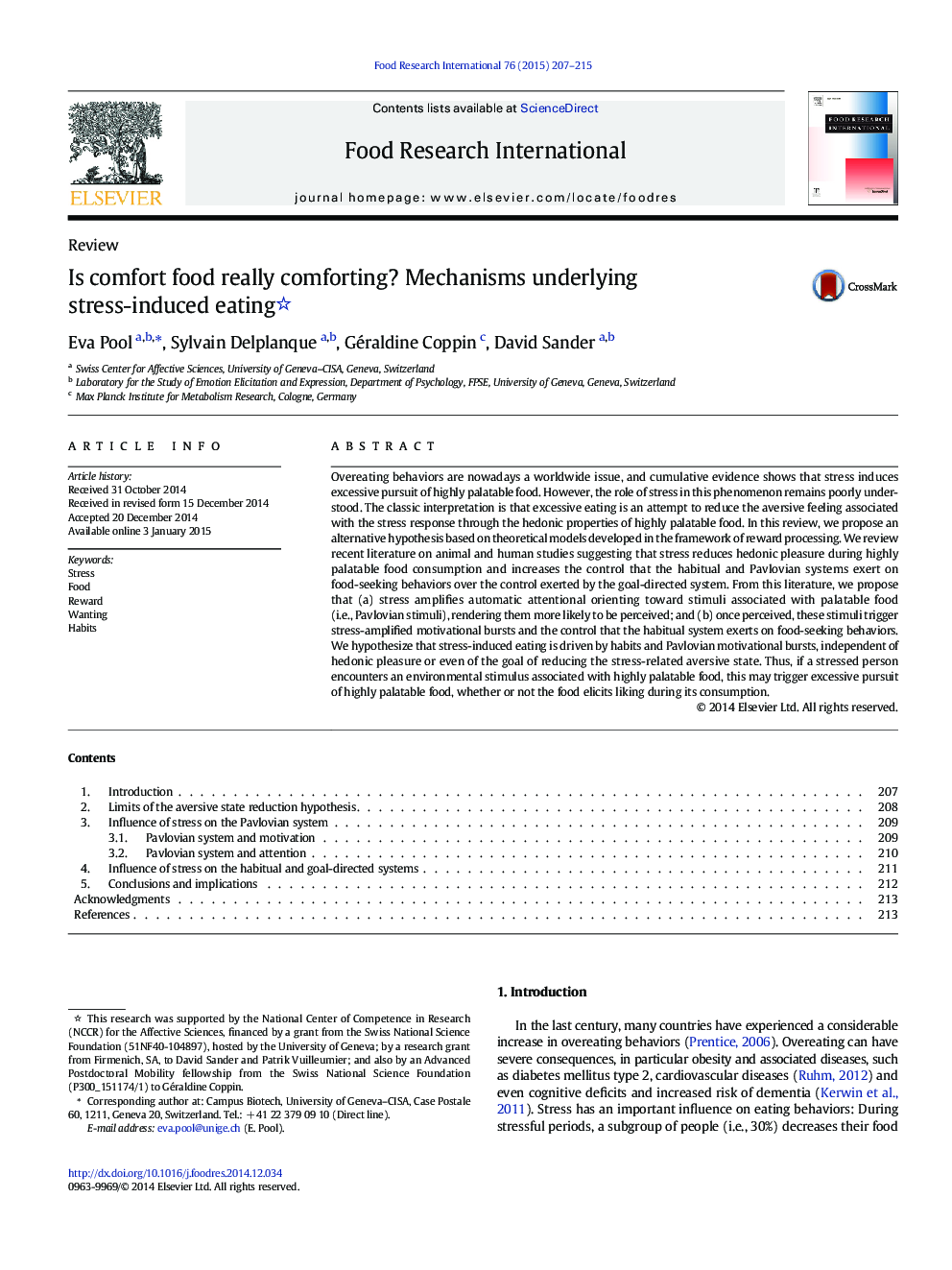| کد مقاله | کد نشریه | سال انتشار | مقاله انگلیسی | نسخه تمام متن |
|---|---|---|---|---|
| 4561562 | 1330651 | 2015 | 9 صفحه PDF | دانلود رایگان |
• Stress decreases the hedonic pleasure experienced during the consumption of highly palatable food.
• Stress triggers food-seeking behaviors, whether food consumption elicits liking or not.
• Stress increases the control exerted by the habitual and the Pavlovian systems over the goal-directed system.
• Interventions regulating the food environment could be a promising strategy to reduce overeating behaviors.
Overeating behaviors are nowadays a worldwide issue, and cumulative evidence shows that stress induces excessive pursuit of highly palatable food. However, the role of stress in this phenomenon remains poorly understood. The classic interpretation is that excessive eating is an attempt to reduce the aversive feeling associated with the stress response through the hedonic properties of highly palatable food. In this review, we propose an alternative hypothesis based on theoretical models developed in the framework of reward processing. We review recent literature on animal and human studies suggesting that stress reduces hedonic pleasure during highly palatable food consumption and increases the control that the habitual and Pavlovian systems exert on food-seeking behaviors over the control exerted by the goal-directed system. From this literature, we propose that (a) stress amplifies automatic attentional orienting toward stimuli associated with palatable food (i.e., Pavlovian stimuli), rendering them more likely to be perceived; and (b) once perceived, these stimuli trigger stress-amplified motivational bursts and the control that the habitual system exerts on food-seeking behaviors. We hypothesize that stress-induced eating is driven by habits and Pavlovian motivational bursts, independent of hedonic pleasure or even of the goal of reducing the stress-related aversive state. Thus, if a stressed person encounters an environmental stimulus associated with highly palatable food, this may trigger excessive pursuit of highly palatable food, whether or not the food elicits liking during its consumption.
Journal: Food Research International - Volume 76, Part 2, October 2015, Pages 207–215
